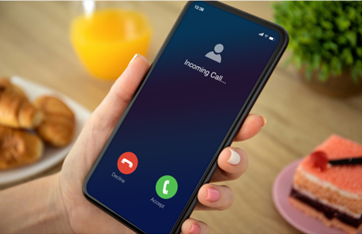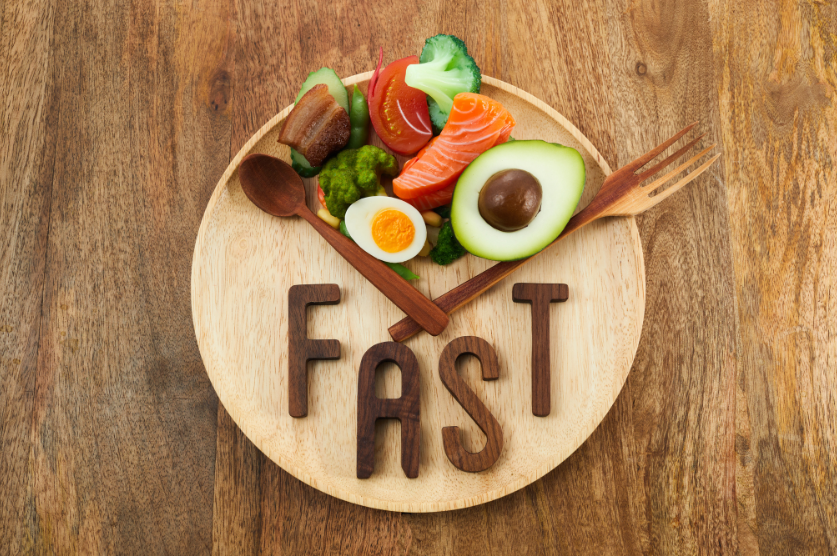Stress is calling. What’s your ringtone?
If meditation, present moment awareness, yoga, and other mindfulness practices feel like a big leap to, take a step back. There is a way to work up to it.
This 3-step self-awareness practice is meant to build a foundation for any mindfulness exercises, so you can take your stress management, decision making, relationships and habits to the next level, improving your overall mental health.
It starts with noticing when stress is calling…

I’ve been through some difficult times lately that made it impossible to get on with my normal daily routine. Life happens, every day. There are events we can control and orchestrate as we please (or best we can), but sometimes things happen that we have no influence over. Days can become overwhelming and getting on with the daily tasks can become incredibly difficult. As grim and disappointing as it sounds, it is normal, and it happens to all of us. Only some people handle it better. What’s their secret?
I learned one thing very well, ages ago: when I feel I can’t cope, I shouldn’t try.
When I was going through those times, I was fully aware that I needed a time-out, and I knew, that the only way forward was to give it to myself.
What happens in the body when you are overstressed?
When we push ourselves too hard, especially when we do it over a longer period of time, we put ourselves under a lot of stress and the chemistry of our body changes. We find ourselves in a constant “Flight or Fight” mode, or cortisol levels get stuck on high, and our body down regulates essential functions like digestion and sleep. When you feel that you reached your breaking point – this is your final clue that you need to reset.
Ideally, however, we don’t reach that point, and for that, we have to notice when we start heading towards it. Because it is easier and quicker to deal with a small amount of stress, than with a huge, accumulated dose of it.
Self-awareness for cortisol management
Every aspect of health (nutrition, movement, relationships, self-care, habits, mental health…) requires a great deal of self-awareness. Being able to observe yourself and to read your body’s messages are the first step on your health journey.
Which is why this is the first skill I teach my clients.
For us, girls, keeping our cortisol level under control becomes especially important. Chronically high levels start a hormonal domino effect, which can dramatically change brain health, digestion, glucose metabolism, having a significant effect not only on our period, but our cognition, patience, productivity, appetite, energy levels, body weight, skin health and more…
Meditation is not the first step
There are many ways to de-stress – I’m sure you come across them all the time. Yoga, meditation, a better sleep routine, different breathing techniques are all great methods. However most of us find it incredibly difficult to take even just five minutes to do any of those.
Moving towards your mindful place.
3 steps towards mindfulness
This 3-step self-awareness plan helps you to get to a place when your stress management practice will not feel like a job, but it can become a part of your self-care routine. An action of self-compassion and self-love.
- OBSERVE
Stress management, just like most changes, really, starts with self-awareness. As you get on with your day as normal, start asking some questions of yourself:
How does your body talk to you?
What’s your body’s way to let you know that you are pushing yourself too hard? Watch out for things like shallow breathing, tensed muscles, difficulty to focus, feeling exhausted, forgetting things, irritability and impatience, changed appetite or digestion, etc.
Do nothing first. When you feel you have fully explored how your body is trying to talk to you, ask yourself the next question:
What do you need?
I hear you. A holiday… but we are trying to deal with our normal daily life here, so think smaller. Think of little, things that make you happy.
Try to put these in 2 different group. I suggest writing them down. It makes it easier to grasp it and remember later.
Make a group for 5-10 minute activities. It can be something like making your favourite cup of tea in your favourite cup, going for a short walk, petting your cat, ring a friend, etc.
List 15-30 minute activities in the other group. Like going for a longer walk, taking the dog out, watching an episode of a trashy tv show, taking a hot (or cold) shower, picking up your knitting or a bit, etc.
How much can you take?
Different types of stressors affect us to different extent. You probably know what triggers more discomfort in your body. Dig into this a little bit deeper by bringing a little more consciousness into it.
Here’s how you can think about it: Are there certain days of the week when you are more stressed than on others? Are there places where you feel more uncomfortable? Are there stressors that you can plan ahead for? This can be related to work or family routines – regular stressors that you can’t easily (or at all) avoid. Are there some that you can avoid if you just change certain circumstances?
- NOTICE and ALLOW
Now that you know what you need, and when you need it, keep paying attention as you go through your day, and try catching the clues you explored. Now make a conscious decision to allow yourself to feel however you feel. The reason why you feel stressed is not because you are not strong enough.
No way!
What is happening is, that you realised where your personal boundaries lie, and you are about to start respecting them. You are improving your self-awareness, and with that, you are setting the ground for mindfulness.
You are finding your ringtone.
A higher level of self-awareness pays off in so many other areas of life!
- TAKE ACTION
Now that you can catch yourself approaching your boundaries you can start using some of the “happy activities” from your list. Start small and increase your self-care activities gradually until it becomes routine.
You’ll see, eventually a 10 minute guided meditation off Spotify will not sound that mysterious and farfetched anymore.
I want you to remember:
YOUR NEEDS ARE NOT LUXURIES.
They are essential so you can thrive in the one life you have.
Get used to looking after yourself.
It’s the only way.
Your takeaway
Stress management should get even more attention when you step into perimenopause. This is because elevated cortisol levels affect your increasingly sensitive oestrogen balance.
This 3-step self-awareness practice could help build a foundation to mindfulness, and bring self-care into your daily routine.
Related Reads…
The reason why you shouldn’t blame yourself if you’re stuck with your health goals
Time restricted eating: your body’s daily reset button
The role of water in our biology, and everything else you need to know about it
WholeSoMe Nutrition
Northumberland, UK
+44(0)7437 576011
© WholeSoMe Nutrition. All rights reserved.
Pictures by Canva Pro and freepik.com
Book a free discovery
call to see how can
nutrition consultation
improve your health
Book a free discovery
call to see how can
nutrition consultation
improve your health
WholeSoMe Nutrition
Northumberland, UK
© WholeSoMe Nutrition. All rights reserved.
Pictures by Canva Pro and freepik.com




